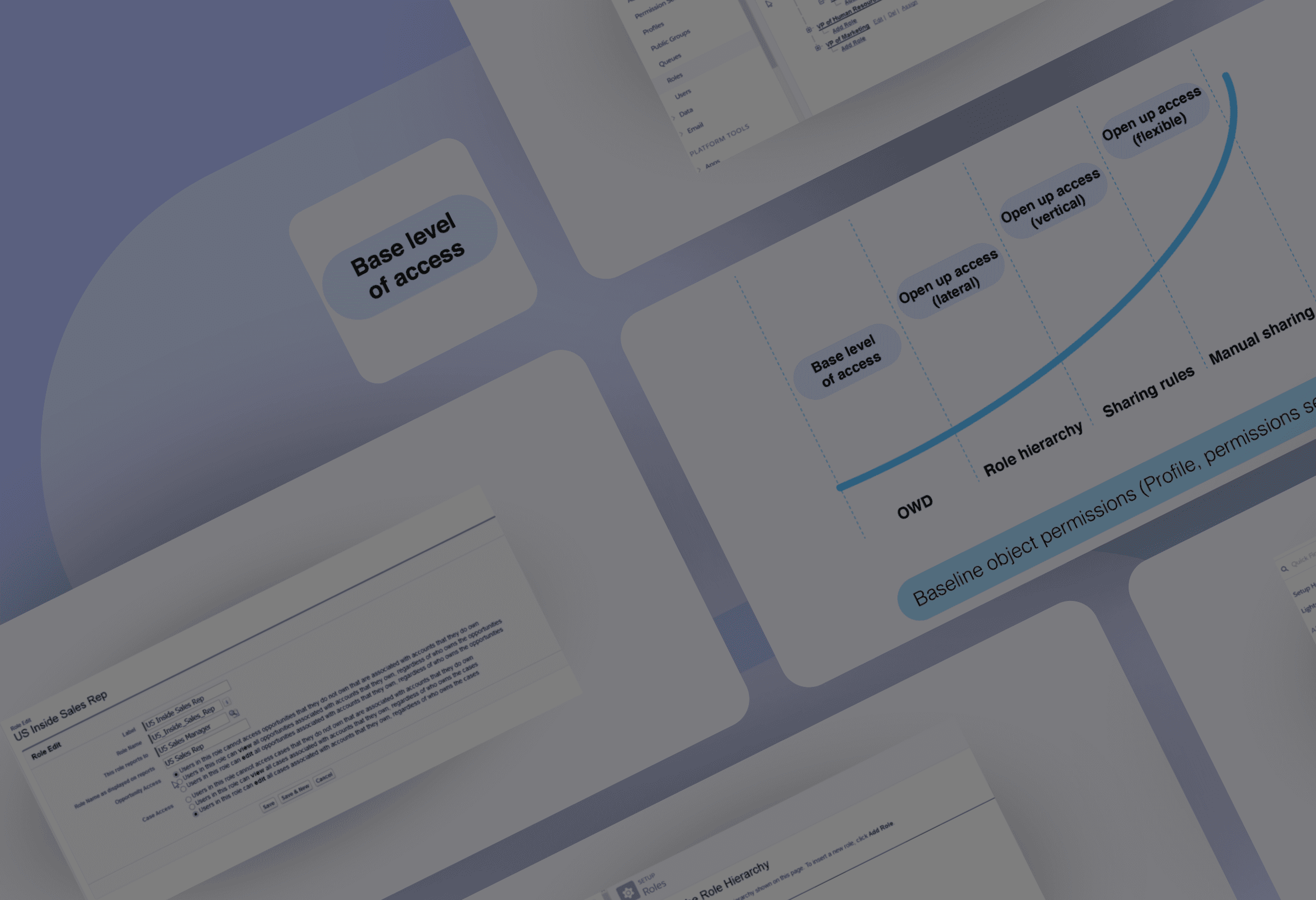
How to choose the right CRM for your nonprofit

As most non-profit leaders know, donor retention is an ongoing battle. The numbers fluctuate from year to year, but it's generally agreed that donor retention rates average at 45%. Similarly, the KPI of donor acquisition costs can vary wildly from one nonprofit to another, but many in the sector agree that it's more cost-effective to leverage existing donors than it is to acquire new ones.
In the for-profit world, the situation isn't so different: Acquiring new customers costs five times what it does to retain a current one. Given that challenge, many businesses rely on nonprofit CRM software to maximize operational efficiency and sales revenue — to the point where their CRM is key to their survival.
The same holds true for nonprofits. A powerful, well-configured CRM that integrates operations with marketing and donor management software can make tapping already-engaged donors and finding new ones much more cost-effective. Paired with sound leadership, CRMs can transform even struggling nonprofits into ones that thrive.
Smart businesses take their time choosing a CRM that best suits their needs and then tailor it accordingly. Nonprofits are just like businesses in that no two are exactly alike, so they should also be deliberate about selecting the right software packages, business systems, and marketing tools to tackle their challenges. The key is knowing which CRM tools are essential, which are optional, and which are superfluous to the nonprofit's business model.
Too many bells and whistles and your staff might spend all their time searching for system workarounds. Not enough features and your nonprofit might fall short of meeting its goals. But regardless of the specifics, any organization — nonprofit or for-profit — should strongly consider robust Customer Relationship Management (CRM) software.
Why nonprofits use CRM
Nonprofit CRM software might start as little more than a digitized address book for your organization, one that stores volunteer and donor information, and business contacts. This includes:
- Background data
- Donation history
- Main areas of philanthropic interest
- Frequency of interaction
- Connections with other stakeholders
That's a great place to start, but with a more robust CRM, nonprofits can create email campaigns, track volunteer engagement, and analyze donor information and trends. Moreover, fundraising efforts and grant applications can be compiled, evaluated, and regularly replicated to keep pace with annual cycles — all with one solution.
Overall, CRM software can dramatically enhance a nonprofit's capabilities in three main areas: management, funding, and communications.
- In management, a CRM provides stronger data security, volunteer coordination, database organization, and stakeholder tracking.
- For funding, it can optimize efforts in fundraising, donor acquisition, and payment processing.
- In communications, a powerful CRM platform offers valuable insights into the efficiency of your campaigns, helps scale your marketing efforts, and is core to your engagement with different communities.
Effective donor management might feel like a heavy lift, but with a centralized CRM tailored to your nonprofit, you can simplify or even automate email updates, requests for support at critical moments, and streamline collaboration across time zones and borders. The key takeaway? Prodding donors by email will always be part of nonprofit work, but a good CRM solution can make it less cumbersome and all-consuming.
Our work for Doctors Without Borders (also known as Médecins Sans Frontières or MSF) demonstrates the expertise Vention brings to nonprofit clients. Operating in over 75 countries, Doctors Without Borders historically used multiple Salesforce systems, resulting in decentralized and disconnected data. We unified the organization's multiple CRMs into a single app, eliminating information silos while boosting productivity and collaboration for all their 65,000 employees.
What a CRM solution looks like, in practice
Here at Vention, we’re no strangers to powering nonprofits with CRM — or how the right CRM can enhance a nonprofit’s capabilities in management, funding, and communications.
Take Equal Education (EE), for example, a social enterprise committed to improving outcomes for vulnerable learners. The company sought our expertise when it needed to ease communication with tutors and streamline complex technical processes. So we helped EE migrate from its legacy system to a custom-built Salesforce platform that eliminated siloes and automated everyday tasks, boosting productivity, empowering 360-degree views of its users, and reclaiming more time for its mission: making education accessible for every learner.
Must-have CRM benefits for nonprofits
Every nonprofit is unique, but there are some universal needs that a CRM solution can address:
- Scalable donor, supporter, and volunteer management
- Dedicated accounting and payment software
- Data centralization for easier access and activation
- Automation of administrative tasks and reporting
- Marketing efficiency and reach, with a focus on retention
Consider the above as non-negotiables. From there, choosing a platform will depend on the particulars of your nonprofit.
Key nonprofit CRM features
As with healthcare, fintech, and e-commerce, "nonprofit" is an umbrella term that covers a diverse segment of businesses, each with its own needs and goals. A disaster relief organization, for example, will need to activate campaigns quickly in the wake of an event, while a medical research charity will likely have its fundraising well-planned in advance.
As you research nonprofit CRMs, consider the core aspects of your organization: Do your involvement efforts lean more towards large, in-person gatherings or email and phone engagements? Is your fundraising concentrated more on a small group of core donors or fundraising drives throughout the year that target new donors? Does your organization have local, national, or international reach?
Each nonprofit CRM emphasizes different features, including:
- Advocacy
- Donation management
- Fundraising support
- Membership management
- Program administration
- Stakeholder relationships and contact management
- Volunteer management and coordination
- Tracking and reporting capabilities
If your nonprofit is built primarily on community engagement, then flexible communication tools that allow you to create and customize email campaigns might take top priority. Likewise, if a steady stream of donations from a particular group of donors is your organization’s lifeblood, then building a donor database, managing online giving, and generating contribution insights will be crucial.
Before you begin evaluating nonprofit CRM solutions, consider the following:
Functionality: How user-friendly is the system? Is it intuitive or will it require training? Are all your must-have features central aspects of the solution, or are some less robust than you need?
Customization: A good CRM for nonprofits will have templates that can be adapted to support your specific needs.
Size and scope: Evaluate your short, medium, and long-term growth goals. You want a nonprofit CRM that's easy to use where you are right now, but powerful enough to scale with you.
Integrations: If you currently use other apps, tools, websites, or software systems that affect your donor or volunteer relationships, make sure that they can integrate with the CRM you're considering.
Top 5 CRM solutions for nonprofits
This is by no means an exhaustive list of your CRM options, but these five vendors provide some of the best nonprofit CRM to start with, each offering top-notch general features and particular areas of expertise.
Salesforce CRM for nonprofits
As the undisputed leader in the for-profit CRM field, Salesforce has substantially customized its platform to fit the needs of nonprofit organizations, with outstanding results: Salesforce reports that, on average, nonprofits who use the Salesforce CRM system see a 31% increase in donor retention and a 48% increase in constituent engagement, and that nine out of ten nonprofit organizations feel that Salesforce for Nonprofits has improved their ability to achieve their mission.
One standout in its nonprofit offerings: the ability to generate deep insights into your constituent base. Powered by AI-driven analytics, Salesforce's Tableau CRM can breathe new life into struggling organizations by strengthening your relationships with donors and volunteers.
Salesforce's Nonprofit Cloud also offers innumerable ways to customize your fundraising and marketing. For example, if a recent fundraiser generated new contacts, you can enter these into the CRM and develop a customized marketing campaign, complete with email sequences, specific engagement strategies, and follow-ups to solicit future donations.
Kindful CRM for nonprofits
Kindful is geared toward growth in both membership and fundraising efforts. The platform makes online donations easy, with numerous templates to design and customize landing and donation pages. Single-click social media integration allows donors and volunteers to share their efforts across Facebook, Twitter, and Instagram.
This platform also integrates with payment processors like PayPal and Stripe. Financial record-keeping and management is a breeze thanks to synchronizations with accounting and e-commerce apps, including QuickBooks, Shopify, Emma, and Eventbrite. If you need to keep detailed records about donor activity, Kindful is a good option.
Bloomerang
Bloomerang prioritizes early-stage nonprofits, making it an efficient stepping stone into the CRM world. With a strong focus on individual fundraising and donor retention, Bloomerang excels in its simplicity: clean interfaces and no hidden costs, plus insights into the engagement level of donors that indicate the best time to make contact.
DonorPerfect
DonorPerfect's approach is to help nonprofits scale quickly. It emphasizes centralization and automation, from integrated donation forms to constant contact with your donor targets to event management. Its cost-effectiveness means you'll avoid excessive software spending, and it doesn't require particularly tech-savvy professionals to operate. Bonus: DonorPerfect's communication and technical support receive high marks.
Virtuous
If you're already a large nonprofit, Virtuous can be a great fit. Its strong predictive analytics and reporting work better the more data you have, and it nudges you with informed suggestions according to your donor database, letting you know when you should run fundraisers, then makes donations easy with a Stripe-powered payment processing solution that includes recurring donations.

Popular CRM integrations for nonprofits
Custom integrations can take your CRM a step further to meet your organization's specific needs.
Chances are your nonprofit will benefit from at least one of these popular integrations:
Social media extensions
Most nonprofits have a presence on at least one social media platform — and those platforms have noticed. For example, Facebook enables fundraising directly through its app, allowing use of your donor information database on the app itself, while synchronizing donation data from Facebook's page to your CRM system. Twitch works similarly, focusing on the creation of livestream donation events to drive donations through viewer interaction.
Payment facilitators
One of the best ways to drive donations is to simplify the donation process as much as possible. Apple Pay enables patrons to donate with the convenience of Touch ID, and PayPal allows for payments with whichever currency the donor wants to use. BitPay drives this even further by enabling donations in Bitcoin.
Match donations
Matching gift programs account for an estimated $2-3 billion in donations annually, making them a powerful tool for maximizing your nonprofit's revenue. When an employee donates with Double the Donation, their employer is notified and prompted to match the gift.
Email marketing extensions
Email service providers like Mailchimp expand your reach with personalized emails, segmenting and automating large donor bases to drive donations.
Peer-to-peer fundraising software
Extensions like Classy put your story at center stage in high-performing donation hubs and crowdfunding campaigns optimized for conversion, maximizing donor engagement and retention.
Regardless of which platform you choose, incorporating CRM software into your nonprofit can make you more efficient and boost your effectiveness in accomplishing the big-hearted goals that got you into this fight in the first place.
Here's to fighting the good fight.






